CYCLOPS
CYCLOPS
RANKO MARINKOVI
TRANSLATED BY VLADA STOJILJKOVI
EDITED BY ELLEN ELIAS-BURSA
YALE UNIVERSITY PRESS  NEW HAVEN & LONDON
NEW HAVEN & LONDON

The Margellos World Republic of Letters is dedicated to making literary works from around the globe available in English through translation. It brings to the English-speaking world the work of leading poets, novelists, essayists, philosophers, and playwrights from Europe, Latin America, Africa, Asia, and the Middle East to stimulate international discourse and creative exchange.
Copyright 2010 Estate of Ranko Marinkovi. Originally published in Croatian by Prosveta, Beograd, 1965, former Yugoslavia. All rights reserved. This book may not be reproduced, in whole or in part, including illustrations, in any form (beyond that copying permitted by Sections 107 and 108 of the U.S. Copyright Law and except by reviewers for the public press), without written permission from the publishers.
Yale University Press books may be purchased in quantity for educational, business, or promotional use. For information, please e-mail (U.K. office).
Set in Electra and Nobel types by Keystone Typesetting, Inc.
Printed in the United States of America.
Library of Congress Cataloging-in-Publication Data
Marinkovi, Ranko, 1913-2001
[Kiklop. English]
Cyclops / Ranko Marinkovi,; translated by Vlada Stojiljkovi;
edited by Ellen Elias-Bursa.
p. cm. (A Margellos world republic of letters book)
Originally published in Serbo-Croatian as: Kiklop.
ISBN 978-0300-15241-8 (hardcover : alk. paper)
1. World War, 1939-1945YugoslaviaFiction. 2. Zagreb (Croatia)Fiction.
I. Stojiljkovi, Vlada, 1938- II. Elias-Bursa, Ellen. III. Title.
PG 1618.M28K513 2010
891.8235dc22
2010024516
A catalogue record for this book is available from the British Library.
This paper meets the requirements of ANSI/NISO Z39.48-1992 (Permanence of Paper).
10 9 8 7 6 5 4 3 2 1
INTRODUCTION
Making his way through a crowded Zagreb square one evening on the eve of World War II, Melkior Tresi catches sight of a priest with familiar, jutting ears. The priest, we learn, had taught him catechism during his childhood in Dalmatia. The fleeting glimpse of the Dalmatian priest in the opening pages of this quintessentially Zagreb novel is Ranko Marinkovis nod to his native Dalmatia. The nod tells us that Melkior Tresi is an outside insider, someone who, like Marinkovi, came to the city as a student, and who sees Zagreb as someone born there never could. Marinkovi captures Zagrebs crowds, the shysters, the army barracks, and the seedy neighborhoods in one of the most famous fictional portraits of the city, yet he peoples the novel with a closely knit group whose playful jibes and cheerful ignorance of the portentous events taking shape around them have a certain resonance with the insular Mediterranean culture in which he was raised.
When Marinkovi set out to write CYCLOPS in the early 1960s he was thinking big. In shaping his plot he reached for the big writers, such as Joyce (whose Ulysses had first been translated into Croatian in 1957), Homer, Shakespeare, and Dostoyevsky. For all the influence of other literatures, however, the novel is anchored firmly in a more local context. The story unfolds on the streets between the Zagreb main square and the Opera House, and the streets and cafs are inhabited by the poets, actors, and other public figures of Marinkovis student years in Zagreb. Along with the readily identifiable references to Hamlet and Leopold Bloom, the narrative and dialogue are interwoven with allusions to various Croatian writers and their characters and to verses of Croatian poetsall unfamiliar to American readers, including Ivan Gunduli, The panorama of Zagreb life in the opening pages of the novel, the MAAR street advertisements, the vendors selling shoelaces, are authentic images of Zagreb life of the late thirties, and Jutarnji List (Morning News) is still hawked by vendors on Zagrebs streets.
There are many comparisons that can be drawn between CYCLOPS and other works of literature, most obviously Ulysses, the Odyssey, and Hamlet. But the irreverence, irony, and satire with which Marinkovi dissects Zagreb cultural life on the eve of World War II also resonate with Joseph Hellers Catch-22 (1961). Hellers biography affords a surprisingly productive comparison with Marinkovis. They both were playwrights and short-story writers, as well as novelists, and they were close in age. Heller fought in active combat in World War II, unlike Marinkovi, who spent the war as an internee and refugee, but both of them were the first, for their respective readerships, to write of World War II in a darkly humorous vein. And they were each known chiefly for their first novel, each of which became a huge best seller, never to be outshone by anything else they later wrote.
The year CYCLOPS was published (1965) was pivotal for postwar Yugoslavia. It followed on a period of furious economic growth during the late 1950s and a repressive spell that came after Yugoslavias break with Cominform in 1948. There were major economic reforms in 1965, and the next year saw the dismissal of the Minister of the Interior, Aleksandar Rankovi, over a wiretapping scandal, which became the symbolic end of the immediate postwar period. The Yugoslav government began allowing its citizens to travel abroad freely in 1966, thereby setting itself apart from the Eastern European countries that were still behind the iron curtain, and these political and economic reforms were accompanied by a thaw in culture. After a brief spell of socialist realism in the early fifties, the literatures in Yugoslavia had asserted a modicum of artistic independence, but only within limits (there could be no mention of the Goli Otok and other prison camps, or articulation of nationalist and separatist sentiments, or scurrilous mention of the person of Josip Broz Tito). The limits relaxed somewhat in the 1960s, which was a decade for ferment in all the arts.
Marinkovis CYCLOPS, published in the midst of all this, and Death and the Dervish, by Mea Selimovi, which appeared a year later, were groundbreaking novels that brought new intellectual depth to the treatment of controversial issues, such as, in CYCLOPS, the use of irony and satire in the treatment of the recent war, and, in Death and the Dervish the nature of repressive authority. As soon as it appeared, CYCLOPS was showered with accolades, including the NIN awardthe most prestigious recognition for literary works in the former Yugoslavia, and the same happened with Death and the Dervish the following year.
To say that Marinkovi raised eyebrows with his ironic treatment of the war theme in CYCLOPS is not to suggest that there had been no antiwar Croatian prose before him. Miroslav Krlea, in particular, is famous for his antiwar stories after World War I. Where Marinkovi broke new ground was in his use of irony and satirical humor to transgress the various strictures imposed by the victorious Partisans on how the conflict would be described in the years following the war. But it was precisely the madcap brand of humor, the sly nicknames used by the denizens of Zagrebs cafs, the fantastical tales of shipwrecked sailors confronted by cannibalistic natives in the South Pacific, the ingenuity with which Melkior Tresi keeps himself out of combat, that gave the novel its irresistible charm and steered it through the sensitive political waters of the day.
Next page
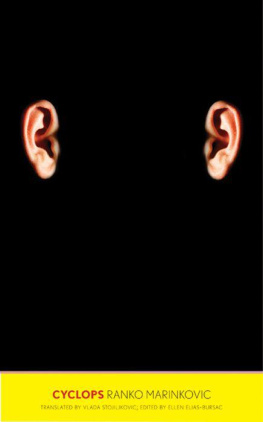
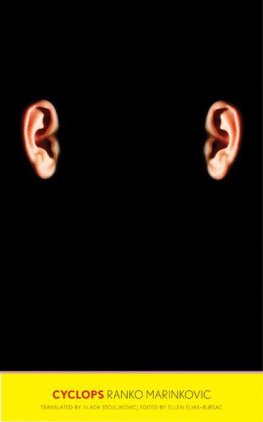

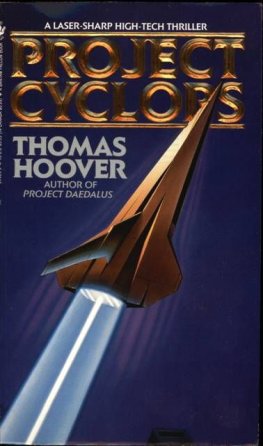

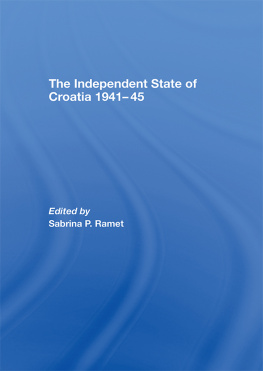
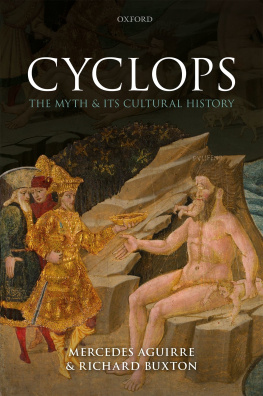
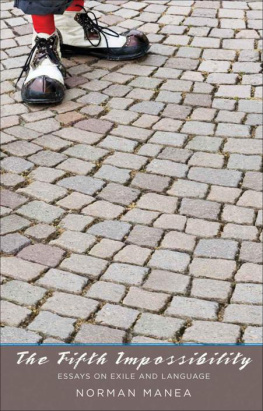
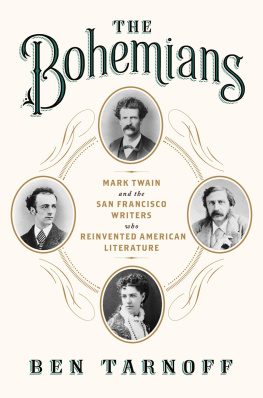
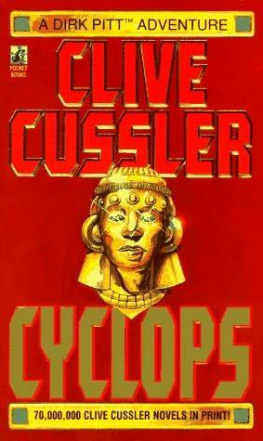
 NEW HAVEN & LONDON
NEW HAVEN & LONDON